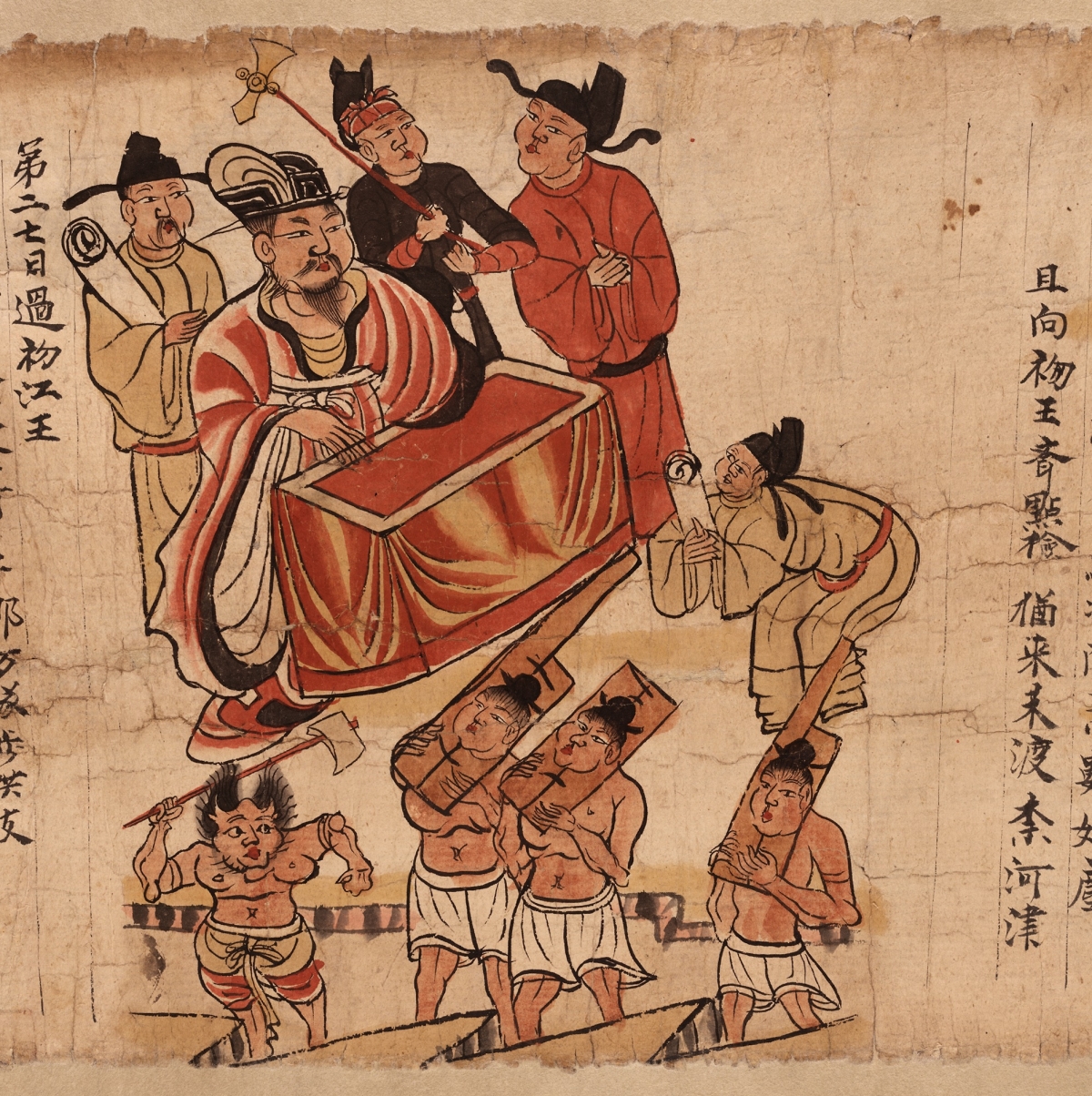Hell in China
VIEW EVENT DETAILS
[Detail of] Sutra of the Ten Kings; China; 10th century; Ink on paper; ©The British Library Board, Or. 8210/S. 3961
What are the conceptions of hell in China, and what role have these traditionally played in shaping the contours of the moral universe for many if not most Chinese? What happened to that moral universe when China’s Communist Party under Mao largely banned the practice of religion, with what lasting effects, and with how much rebounding to previous norms once those restrictions eased up? Has a renewed search for meaning and spirituality in China over the past couple of decades, an era of rapid growth and rapid change, led to different understandings of hell and the role it plays in modern life? Join this in-person conversation with former New York Times China correspondent Ian Johnson, author of The Souls of China: The Return of Religion after Mao; Tao Jiang, the chair of Rutgers University’s religion department; and moderator Mary Kay Magistad, a former NPR and PRI/BBC China correspondent, now deputy director of Asia Society’s Center on U.S.-China Relations.
The discussion is held in conjunction with the Asia Society Museum's exhibition Comparative Hell: Arts of Asian Underworlds.
Speakers:
Ian Johnson has been engaged with China for the past thirty-five years, writing on the country’s search for faith and values, as well as efforts to control dissent and history. He is a senior fellow for Chinese studies at the Council on Foreign Relations, contributes to The New York Review of Books and The New York Times, and regularly speaks in the media or to public audiences about China. In 2020, the National Endowment for the Humanities awarded him a Public Scholar grant to write a new book on historical memory in China. Other awards include: the Pulitzer Prize for reporting on China; Stanford University’s Shorenstein prize for his body of work on Asia; a grant from the Open Society Foundation; a Nieman fellowship at Harvard University; the American Academy of Religion’s award for best in-depth news writing; and a Robert B. Silvers Foundation inaugural grant for work-in-progress.
Tao Jiang is professor in the Department of Religion and an associate member of the graduate faculty in the Department of Philosophy at Rutgers University, New Brunswick, New Jersey. His primary research interest is Mahāyāna Buddhist philosophy, classical Chinese philosophy, and cross-cultural philosophy. He is the author of Origins of Moral-Political Philosophy in Early China (2021), Contexts and Dialogue: Yogācāra Buddhism and Modern Psychology on the Subliminal Mind (2006), and co-editor of an anthology, The Reception and Rendition of Freud in China: China’s Freudian Slip (2013). He co-directs the Rutgers Workshop on Chinese Philosophy (RWCP) and serves on the editorial boards of several Asian philosophy journals. He is currently working on several book manuscripts including one on Zhuangzi's political philosophy and one on Linji's Chan/Zen philosophy.
Mary Kay Magistad is the Deputy Director of the Asia Society Center on U.S.-China Relations. She is an award-winning journalist who lived and reported in East Asia for more than two decades, including in China for NPR (1995-99) and PRX’s The World (2003-13). She has taught international reporting at the University of California at Berkeley’s Graduate School of Journalism, where she also led the audio journalism department. She is the recipient of numerous awards, including the Dupont-Columbia Silver Baton award, an Overseas Press Club award, and awards from Sigma Delta Chi/Society of Professional Journalists and the Scripps-Howard Foundation. She has an M.A. from the University of Sussex (UK) in international relations and a B.A. from Northwestern University in journalism and history.
Event Details
725 Park Avenue
New York, NY 10021